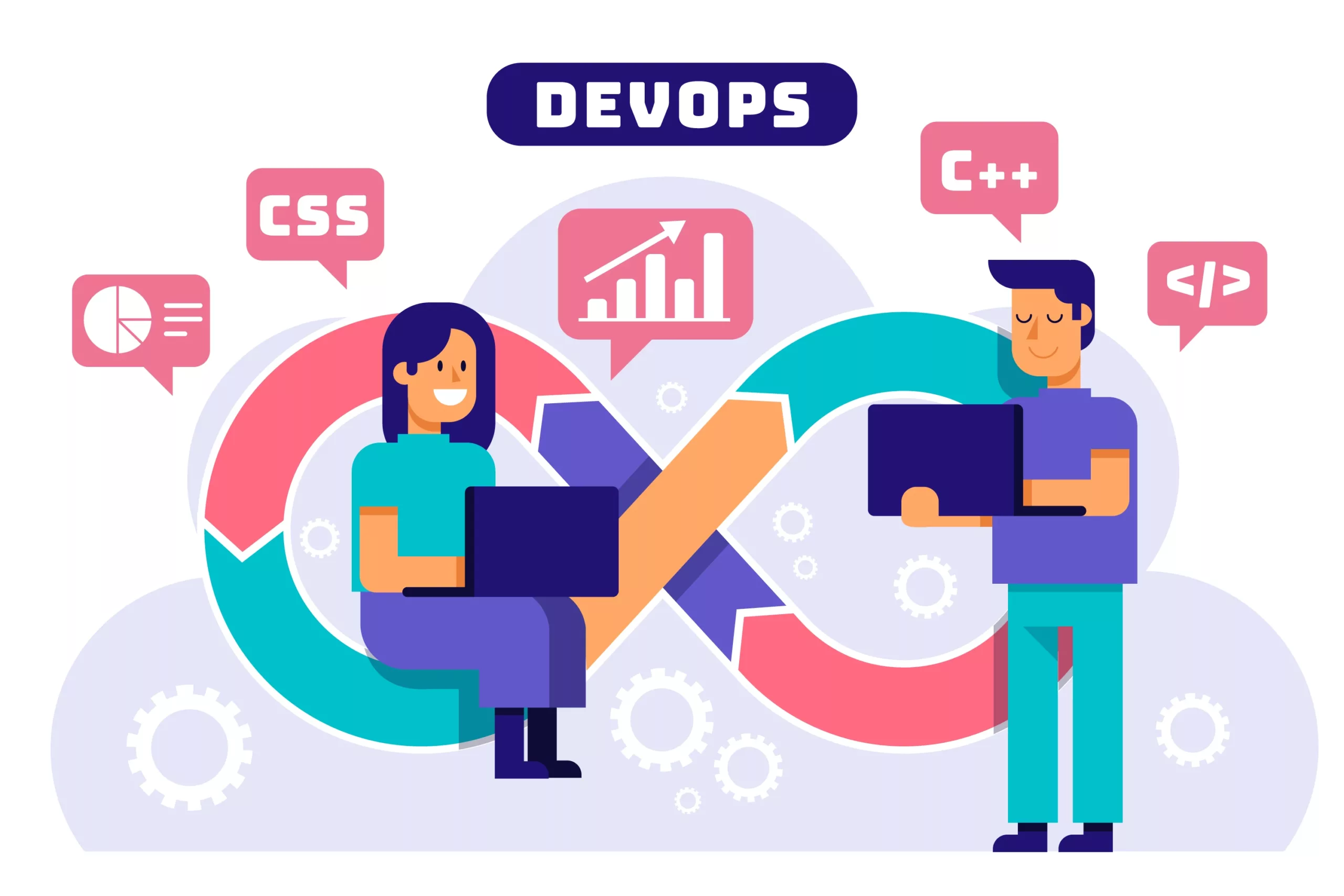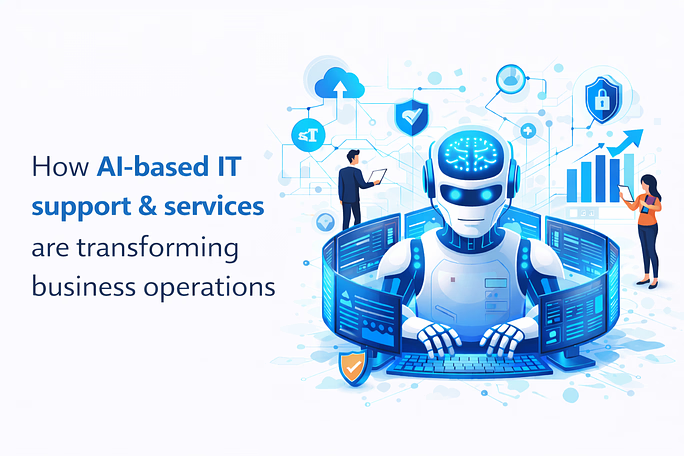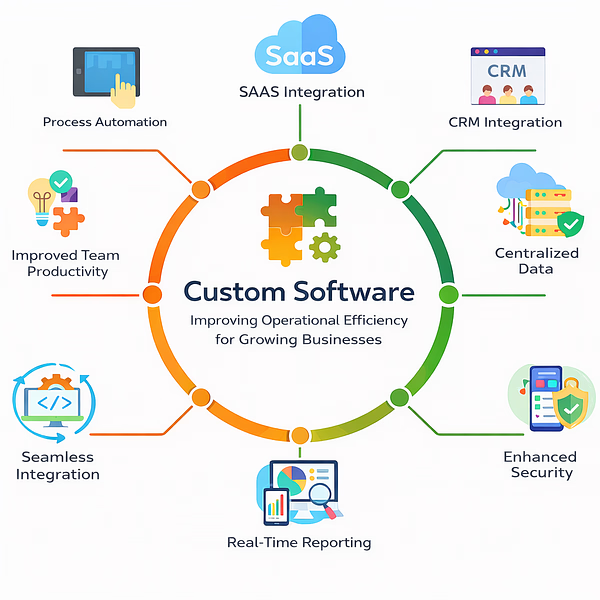The Importance of IT Support and Maintenance Services for Business Growth

What are IT Support and Maintenance Services?
IT support and maintenance services are essential to keep systems running smoothly, minimize downtime, and protect data. Whether you’re a small business or a large enterprise, a strong IT support system ensures efficiency and security.
Without reliable IT support, businesses face risks such as data loss, security breaches, and system failures, which can result in costly downtime and loss of productivity. A well-structured IT maintenance plan not only enhances efficiency but also enables businesses to stay competitive by leveraging the latest technological advancements.
Moreover, proactive IT maintenance ensures that software updates, patches, and system optimizations are carried out regularly—minimizing vulnerabilities and enhancing performance. With 24/7 monitoring and support, companies can quickly address unexpected issues, keeping operations smooth and customers satisfied.
Additionally, IT support teams provide strategic guidance to help businesses adopt scalable solutions, manage cloud infrastructure, and ensure compliance with industry standards. By outsourcing IT maintenance to experienced professionals, organizations can focus more on core business functions and long-term growth—leaving the technical complexities to experts. Ultimately, consistent IT support is not just an operational necessity but a strategic investment.
At Ideas2Goal, our approach is not just about fixing issues—they’re designed to enhance your operational efficiency. By proactively monitoring systems, streamlining updates, and minimizing downtime, we ensure your technology infrastructure operates smoothly and supports business continuity. This translates into fewer disruptions, faster response times, and improved productivity for your team.
Partnering with us means investing in long-term stability and performance. Our tailored support solutions help organizations optimize workflows, reduce technical bottlenecks, and focus on core business objectives. Whether it’s cloud management, network maintenance, or cybersecurity, our services are built to drive greater operational efficiency across every layer of your IT environment.
Managed IT Support & Services for US & UK Businesses
At Ideas2Goal, we understand that businesses across the US and UK demand proactive, reliable, and compliance-driven IT support. Our managed IT services, available 24/7, cover essential needs—from network monitoring and cybersecurity to data backup, compliance, and cloud infrastructure optimization, ensuring your operations remain smooth and secure. We serve businesses across regions, including our USA office in Gilbert, Arizona, and our global technology hubs.
Compliance-Ready & Secure IT Infrastructure
Whether you operate in regulated sectors or focus on safeguarding customer data, our IT support is built for GDPR, HIPAA, SOC 2, and ISO compliance. We deliver:
- Advanced cybersecurity measures—firewalls, intrusion detection systems, vulnerability assessments, multi-factor authentication
- Regular patch management and endpoint monitoring—to reduce vulnerabilities and ward off cyber threats
Proactive Monitoring & Rapid Helpdesk Support
Downtime hurts productivity—and margins. That’s why we offer:
- Real-time network and system monitoring, so we detect and resolve issues before they escalate
- A fully functional 24/7 help desk, accessible via phone, email, chat, and ticketing systems—delivering prompt, multi-channel support for US and UK teams alike
Business Continuity with Cloud & Disaster Recovery
Interruptions happen—but with us, you’re always ready:
- Automated data backups and redundant cloud storage ensure fast disaster recovery, minimizing downtime and revenue loss
- Custom recovery plans—including cloud migration and infrastructure resilience tailored for US/UK environments
Scalable, Custom IT Strategies Aligned with Growth
From startups in London to enterprises in New York, we tailor IT plans that evolve with your business:
- Customized service plans—built around your budget, team size, tech stack, and compliance needs
- Seamlessly scalable solutions that adapt as you expand, with real-time infrastructure performance tuning
Why US & UK Businesses Trust Ideas2Goal
- Global Presence: Our office in Gilbert, Arizona ensures timely support and local responsiveness for US clients
Managed IT & Helpdesk Expertise: From IT consulting and vendor management to proactive maintenance and strategic tech roadmapping, we deliver end-to-end IT excellence
Industry-Proven Track Record: Since 2020, Ideas2Goal has served clients across five countries, consistently enhancing efficiency through custom software and managed IT services
1. Minimize Downtime and Increase Productivity
One of the most significant advantages of IT support and maintenance is minimizing system downtime. Every minute a system is down translates to lost productivity and potential revenue. IT support ensures that any issues are identified and resolved quickly, preventing prolonged outages. Scheduled maintenance and regular updates keep systems running smoothly, reducing the likelihood of unexpected failures.
At Ideas2Goal, our comprehensive solutions are designed to ensure your business operates without interruptions. We provide proactive monitoring, regular system updates, and rapid issue resolution to keep your IT infrastructure robust and secure.
2. Proactive Monitoring and Issue Resolution
IT support and services go beyond merely reacting to problems; they focus on proactive monitoring to identify potential issues before they impact the business. Regular system checks, software updates, and security patches help prevent technical glitches and cyber-attacks. An effective IT support team also keeps an eye on your hardware and software, watching for early warning signs of failure or inefficiency.
Proactive maintenance enables businesses to stay ahead of problems, which leads to reduced downtime, improved performance, and a more secure IT environment. This approach empowers organizations to focus on core activities without being derailed by unexpected tech issues.
3. Data Protection and Security
In an era where data breaches and cyber threats are prevalent, data security is a top priority for businesses of all sizes. IT support services ensure that your systems are protected against threats such as malware, ransomware, and phishing attacks. They regularly apply security patches and perform updates to close any vulnerabilities.
Moreover, data backup solutions included in IT maintenance services ensure that critical information is safely stored. In case of a hardware failure, accidental deletion, or cyberattack, your business can rely on rapid data restoration, minimizing the impact on operations and customer trust.
4. Cost-Effective IT Management
Outsourcing IT support and maintenance can be more cost-effective than maintaining a full-time in-house IT team. Small to medium-sized businesses, in particular, benefit from having access to expert-level support without bearing the overhead costs associated with recruitment, training, and salaries.
By relying on external support, companies can reduce emergency repair costs, avoid system downtimes, and prevent major IT disasters. Over time, this predictable and controlled IT expenditure supports better budgeting and improves overall financial planning.
In addition to improving efficiency and reliability, a well-managed IT strategy helps businesses reduce cost across multiple operational areas. By identifying inefficiencies, preventing system failures, and minimizing emergency repairs, proactive IT management lowers unexpected expenses and optimizes technology spending. Predictable maintenance schedules, resource optimization, and strategic infrastructure planning allow organizations to control IT budgets more effectively while still maintaining high performance and security standards.
5. Scalability and Flexibility
As your business grows, your IT needs evolve. These services provide scalable and flexible solutions that adapt to your changing requirements. Whether you’re onboarding new employees, expanding locations, or introducing new technologies, your IT support partner can help you scale your infrastructure efficiently.
A scalable IT service ensures that your business doesn’t face limitations due to outdated or incompatible systems. This agility and adaptability enable you to adopt innovations faster and maintain competitiveness in your industry.
6. Access to Expert Knowledge
Many small and mid-sized businesses struggle to stay updated with the latest technological advancements and industry best practices. Partnering with an IT support provider grants access to a dedicated team of experts who bring deep knowledge in areas such as cloud computing, cybersecurity, networking, and compliance.
This expert guidance ensures that your IT infrastructure is not only functional but strategically aligned with your business goals. Your provider can recommend the right tools and solutions that improve performance, enhance security, and support long-term growth.
7. Business Continuity and Disaster Recovery
Disaster recovery and business continuity planning are essential for organizations that want to stay resilient during disruptions. A comprehensive IT support service includes disaster recovery planning, ensuring that your systems and data are restored quickly in the event of an emergency.
Whether it’s a natural disaster, cyberattack, or hardware failure, having a robust recovery plan minimizes operational losses and enables a faster return to normalcy. With automated backups, redundant systems, and predefined recovery processes, businesses can mitigate risk and maintain customer trust even under pressure.
8. Enhanced Focus on Core Business Activities
When IT operations are managed by experts, your internal teams can focus more on core business functions instead of troubleshooting technical issues. By offloading the responsibility of managing, securing, and updating systems to a dedicated IT service provider, businesses can redirect time and energy to areas like product development, customer service, and sales.
This not only improves overall productivity but also supports strategic decision-making and innovation. In today’s fast-paced environment, the ability to stay focused and agile is a significant competitive advantage.
Reliable Technical Support and Maintenance Solutions to Keep Your Business Running Smoothly.
In today’s fast-paced digital environment, having dependable IT support and maintenance services is essential for minimizing downtime, improving system performance, and securing sensitive business data. Our expert team ensures your IT infrastructure is proactively monitored, regularly updated, and fully optimized to support daily operations. Whether it’s remote troubleshooting, on-site tech support, or scheduled system maintenance, we provide end-to-end solutions tailored to your business needs.
Why Choose Our Technology Services?
We go beyond basic tech support by offering strategic guidance, preventative care, and responsive issue resolution. With our managed IT services, you gain 24/7 support, automated backups, security patching, and performance tuning—all designed to maximize efficiency and scalability. By choosing these services, your business gains a reliable partner committed to long-term stability, allowing you to focus on growth while we handle the technical complexities.
Key Benefits of IT Support and Maintenance Services
1. Proactive System Monitoring and Issue Prevention
One of the primary advantages of investing in IT support and maintenance services is proactive monitoring. Rather than reacting to issues as they arise, managed IT services continuously monitor your infrastructure to detect potential problems before they escalate. This approach minimizes disruptions and ensures smooth operations.
By utilizing real-time monitoring tools, IT professionals can identify irregularities, unauthorized access attempts, and system vulnerabilities, preventing system failures and cyber threats before they become critical. Businesses benefit from improved stability and consistent uptime, ensuring smooth workflow and uninterrupted operations.
2. Enhanced Cybersecurity Measures
With cyber threats on the rise, businesses must implement strong security protocols. Regular IT maintenance includes software updates, security patches, and vulnerability assessments to protect sensitive data from cyberattacks. These services reduce the risk of malware, phishing attacks, and data breaches.
Additionally, IT support teams provide endpoint security solutions, network firewalls, and multi-factor authentication (MFA) to fortify system defenses. Regular employee training sessions on cybersecurity awareness further mitigate the risks of social engineering attacks and phishing scams.
As cybercriminals continue to evolve their tactics, proactive cybersecurity has become a critical component of business resilience. Advanced threat detection systems, intrusion prevention tools, and continuous monitoring services offered by IT support professionals help identify and neutralize threats before they can cause harm. Encryption of data in transit and at rest, along with secure remote access protocols, ensures that sensitive business information is always protected.
Furthermore, a dedicated IT team performs regular audits and compliance checks to ensure that security measures meet industry regulations and standards. This not only protects the company’s digital infrastructure but also builds customer confidence and enhances the organization’s reputation. Investing in comprehensive cybersecurity strategies is no longer optional—it is essential for safeguarding operations in a digitally connected world.
3. Cost Efficiency and Reduced Downtime
Unplanned downtime can lead to significant financial losses. IT maintenance services help reduce downtime by identifying and resolving issues swiftly. Instead of dealing with expensive emergency fixes, businesses benefit from a cost-effective, proactive IT management strategy.
Managed IT services also optimize resource allocation by ensuring systems run efficiently and eliminating redundant processes. Predictable IT expenses through managed service agreements allow businesses to budget effectively and avoid unexpected repair costs.
4. Data Backup and Disaster Recovery
Data is one of the most valuable assets of any business. A reliable IT support team ensures that data is regularly backed up and a robust disaster recovery plan is in place. This guarantees business continuity even in the event of hardware failures or cyber incidents.
Data loss due to accidental deletion, hardware failure, or cyberattacks can be catastrophic for a company. Cloud-based backups, redundant storage solutions, and disaster recovery protocols ensure that businesses can restore operations quickly with minimal data loss. Automated backup scheduling also reduces the risk of human error in manual data backups.
5. Scalability and Future-Proofing
As businesses grow, their IT requirements evolve. IT support services help companies scale their infrastructure efficiently without disruptions. Whether integrating cloud solutions, upgrading hardware, or implementing new software, having a dedicated IT support team ensures seamless transitions.
Cloud computing services, virtualization, and infrastructure upgrades allow businesses to adapt to increasing demands without the need for extensive downtime. A future-proof IT strategy ensures long-term sustainability and a competitive edge in the industry.
Services Typically Included in IT Support and Maintenance
In today’s fast-paced digital world, businesses heavily rely on technology to function efficiently. From ensuring data security to maintaining hardware and software systems, IT support and maintenance services play a critical role in minimizing downtime and boosting productivity. These services are designed to prevent technical issues, resolve problems quickly, and support business continuity. Below is a breakdown of the most commonly included services in IT support and maintenance contracts.
1. Help Desk and Technical Support
One of the core components of IT support is providing access to a help desk. This service typically includes telephone, email, and chat support for troubleshooting and resolving issues with computers, software, printers, and other IT equipment. Whether it’s a password reset or a system crash, having a responsive help desk ensures that employees can continue working with minimal disruption.
2. Hardware and Software Maintenance
IT maintenance services usually include the regular upkeep of computer hardware and software systems. This means applying updates, fixing bugs, replacing aging components, and ensuring that all systems run smoothly. Routine maintenance prevents hardware failures, software glitches, and performance slowdowns, which could otherwise affect business operations.
3. System Monitoring
Proactive system monitoring is another key service. IT support teams use specialized tools to continuously monitor servers, networks, and critical applications. This allows them to detect and address potential problems—such as server overloads or unauthorized access—before they become major issues. Monitoring helps in maintaining performance, ensuring security, and optimizing system uptime.
4. Security Management
Cybersecurity is a vital aspect of IT support and maintenance. Service providers typically implement firewalls, antivirus software, intrusion detection systems, and regular security audits to safeguard your infrastructure. They also ensure timely installation of security patches and provide guidance on data protection protocols to protect your business from malware, ransomware, and data breaches.
5. Data Backup and Disaster Recovery
Data is one of a company’s most valuable assets. IT support services include regular data backups and disaster recovery planning. This ensures that in the event of hardware failure, cyberattacks, or natural disasters, your business can quickly restore lost data and resume operations. Cloud backups and off-site storage are commonly used for added protection.
6. Network Management
A reliable network is essential for seamless communication and data sharing. IT support services cover network configuration, maintenance, and optimization. This includes setting up routers and switches, managing bandwidth, troubleshooting connectivity issues, and maintaining VPNs and firewalls for secure remote access.
7. Software Licensing and Updates
IT support also includes managing software licenses and ensuring that all applications are up to date. Staying current with software not only improves performance but also addresses security vulnerabilities that older versions may contain.
8. IT Asset Management
Tracking and managing IT assets—such as laptops, servers, and peripherals—is another crucial service. IT support providers maintain inventories, monitor asset health, and plan upgrades or replacements as necessary.
How to Choose the Right IT Support and Maintenance Provider for Your Business
When selecting an IT maintenance services provider, consider the following factors:
Experience and Expertise:
Choose a provider with a proven track record in managing IT infrastructures across various industries. Their experience reflects their ability to handle diverse IT challenges, from server failures to network disruptions. A seasoned provider will have in-depth knowledge of various operating systems, enterprise software, and cybersecurity protocols, enabling them to diagnose and fix issues quickly. Make sure to ask for case studies or client testimonials that demonstrate their success in supporting businesses similar to yours.
24/7 Support Availability:
Downtime can occur anytime. A provider offering round-the-clock support ensures immediate resolution of critical issues. Look for service-level agreements (SLAs) that guarantee response times and issue escalation procedures. Businesses that operate in different time zones or provide services beyond the standard 9-to-5 need a partner who is always reachable—whether it’s late at night or during weekends and holidays. This continuous support minimizes business disruption and maintains customer trust.
Customizable Solutions:
Different businesses have different IT needs. Look for a provider that offers tailored solutions to match specific business requirements. A flexible IT maintenance partner will not push one-size-fits-all packages but instead assess your infrastructure and provide services aligned with your goals, size, industry, and budget. Whether your business relies heavily on cloud systems, legacy applications, or complex networks, customization ensures that your IT support complements rather than complicates your operations.
Security Compliance:
Ensure that the provider follows industry standards and compliance regulations to protect sensitive business data. With growing cybersecurity threats and data privacy laws such as GDPR, HIPAA, and ISO standards, it is essential that your IT partner enforces robust security practices. Ask if they perform regular audits, risk assessments, data backups, and incident response simulations. Compliance isn’t just about ticking boxes—it’s about building a resilient and secure IT environment.
Choosing an IT support provider that prioritizes compliance demonstrates a commitment to safeguarding both your data and your clients’ trust. A reliable partner should stay current with evolving regulations and provide documented proof of compliance procedures. They should also offer support in preparing for compliance audits, helping your organization avoid fines and reputational damage. This proactive approach ensures that your systems are not only secure but also legally sound.
Cloud Integration Capabilities:
With more businesses shifting to cloud-based solutions, the provider should offer seamless cloud migration and hybrid IT support services. Whether you use public, private, or hybrid cloud setups, the provider should be able to manage these environments efficiently. From selecting the right cloud platforms to ensuring secure data migration and ongoing cloud performance monitoring, a capable IT partner simplifies the transition and optimizes your digital infrastructure.
An experienced IT team will also help manage cloud costs, enhance scalability, and ensure that data is encrypted and redundantly stored. Cloud integration done right leads to increased agility, faster collaboration, and reduced downtime—essential qualities for any competitive business environment.
Remote and On-Site Support:
A balance between remote troubleshooting and on-site intervention ensures prompt resolution of both software and hardware-related issues. Remote support allows for immediate diagnosis and repair of common problems without physical presence, saving time and cost. However, for hardware failures or network infrastructure setups, on-site support remains essential. Your IT partner should offer both capabilities with the agility to deploy technicians as needed.
Scalability and Proactive Maintenance:
Another critical consideration is the provider’s ability to scale their services as your business grows. Whether you’re opening new offices, expanding your workforce, or integrating new systems, your IT support must grow with you. Additionally, a proactive approach—where potential issues are identified and resolved before they become major problems—saves both time and money. Look for providers that offer preventive maintenance, performance monitoring, and regular system updates.
By evaluating these criteria carefully, you can choose an IT support and maintenance provider who not only keeps your systems running smoothly but also contributes strategically to your company’s long-term growth and digital resilience.
Conclusion
Investing in IT support and maintenance services is essential for businesses to thrive in today’s technology-driven world. From cybersecurity to system monitoring, these services enhance business operations, protect critical data, and ensure seamless continuity.
Comprehensive software maintenance and support services include regular updates, proactive monitoring, and timely resolution of potential issues to optimize system performance. Reliable technical support ensures minimal downtime, while hardware maintenance extends the lifespan of critical infrastructure.
With clearly defined service level agreements, businesses can ensure customer satisfaction by delivering a seamless user experience. These services enable organizations to stay ahead of technological advancements, mitigate risks, and maintain peak performance across all systems. By partnering with a reliable IT service provider, businesses can focus on growth while leaving technical challenges in expert hands.
With a proactive IT strategy, businesses can enhance productivity, improve customer experiences, and mitigate potential risks. Whether it’s small business IT support or enterprise-level managed services, a well-maintained IT infrastructure is the backbone of long-term success.
FAQs
1. Why is IT support and maintenance essential for business growth?
Reliable IT support ensures that your systems run smoothly, minimizing downtime and boosting productivity. Regular maintenance helps identify and resolve issues early, allowing businesses to scale securely and efficiently without disruptions.
2. What services are typically included in IT support and maintenance?
Common services include hardware and software troubleshooting, network management, cybersecurity monitoring, system updates, data backups, and user support. Many providers also offer 24/7 helpdesk and proactive system monitoring to prevent issues before they arise.
3. How does proactive IT maintenance benefit my company?
Proactive maintenance identifies vulnerabilities and resolves them before they cause problems. This approach reduces downtime, prevents data loss, enhances system performance, and ensures your technology evolves alongside your business needs.
4. Can small and medium-sized businesses afford professional IT support?
Yes. Many IT support companies offer scalable packages tailored to the size and needs of your business. Outsourcing IT services can actually save costs in the long run by avoiding expensive downtime, security breaches, and emergency fixes.
5. How do IT support services contribute to cybersecurity?
IT support providers implement security best practices like firewalls, antivirus software, system monitoring, and regular patch management. They also conduct risk assessments and provide staff training to reduce the risk of cyberattacks and data breaches.



